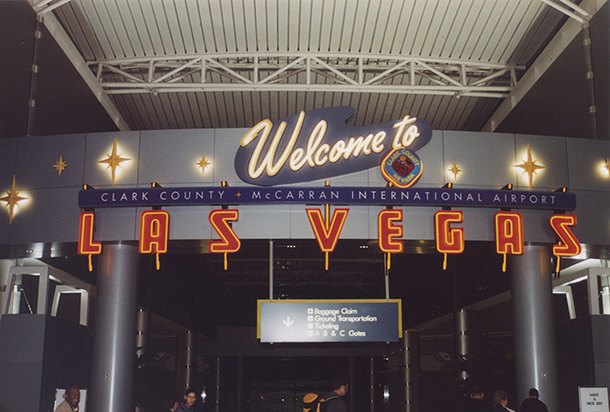Rental Car Companies Reeling From Uptick in Travelers
Rental car companies are their own worst enemies, having sold off much of their fleets during the pandemic’s height. With travel restrictions easing in many places they find themselves with no inventory.
Consolidation is another aspect that hasn’t helped whatsoever. There’s Enterprise Holdings, which is Enterprise, National, and Alamo. Hertz and Advantage are one. Avis and Budget are another group, as is Dollar and Thrifty. In some places, you’ll find Sixt, a German mobility service provider. Other than that, there’s maybe a few regional players. The point here is that in many locations, they’ll rent you the same vehicle under one brand or another. This reduces the total number of cars they need, if demand is up at Budget, but not so at Avis because they’re generally more expensive. The same goes for Hertz, which is usually the highest-priced.
Last October, I went to Phoenix for a business meeting. While there were few passengers on board the plane, it was a different story on the ground in Phoenix. With fewer restrictions in that state, it appeared to be pretty much business as usual. The big change was instead of thousands of rental cars in this mammoth holding area that all the rental companies use, there were hundreds. Empty parking spots in the multi-tiered lot outnumbered those with vehicles waiting. All of them were rented, and anyone waiting at the airport for a vehicle was going to be there a long time.
What happened in Phoenix then has spread to other areas of the country. Friends vacationing in Florida said that they are using Uber because there were no cars to be had in Orlando, and they hadn’t planned ahead. A story today by businessinsider.com only confirmed what I knew already. Prices in some areas are $700 a day, higher than they are for airfare and hotels.
Planning ahead is the only way to avoid these horrendous rental charges. Heading to a tourist hot spot? If you don’t have a reservation, try finding a local agency within a short distance away from the airport. Some local agencies will pick you up and drop you off at the airport, saving you a taxi ride. No, they may not have the same selection of vehicles, but wheels are wheels, right?
[Images: © 2021 J. Sakurai/TTAC]
With a father who owned a dealership, I literally grew up in the business. After college, I worked for GM, Nissan and Mazda, writing articles for automotive enthusiast magazines as a side gig. I discovered you could make a living selling ad space at Four Wheeler magazine, before I moved on to selling TV for the National Hot Rod Association. After that, I started Roadhouse, a marketing, advertising and PR firm dedicated to the automotive, outdoor/apparel, and entertainment industries. Through the years, I continued writing, shooting, and editing. It keep things interesting.
More by Jason R. Sakurai
Latest Car Reviews
Read moreLatest Product Reviews
Read moreRecent Comments
- Mike Bradley Autonomous cars were developed in Silicon Valley. For new products there, the standard business plan is to put a barely-functioning product on the market right away and wait for the early-adopter customers to find the flaws. That's exactly what's happened. Detroit's plan is pretty much the opposite, but Detroit isn't developing this product. That's why dealers, for instance, haven't been trained in the cars.
- Dartman https://apnews.com/article/artificial-intelligence-fighter-jets-air-force-6a1100c96a73ca9b7f41cbd6a2753fdaAutonomous/Ai is here now. The question is implementation and acceptance.
- FreedMike If Dodge were smart - and I don't think they are - they'd spend their money refreshing and reworking the Durango (which I think is entering model year 3,221), versus going down the same "stuff 'em full of motor and give 'em cool new paint options" path. That's the approach they used with the Charger and Challenger, and both those models are dead. The Durango is still a strong product in a strong market; why not keep it fresher?
- Bill Wade I was driving a new Subaru a few weeks ago on I-10 near Tucson and it suddenly decided to slam on the brakes from a tumbleweed blowing across the highway. I just about had a heart attack while it nearly threw my mom through the windshield and dumped our grocery bags all over the place. It seems like a bad idea to me, the tech isn't ready.
- FreedMike I don't get the business case for these plug-in hybrid Jeep off roaders. They're a LOT more expensive (almost fourteen grand for the four-door Wrangler) and still get lousy MPG. They're certainly quick, but the last thing the Wrangler - one of the most obtuse-handling vehicles you can buy - needs is MOOOAAAARRRR POWER. In my neck of the woods, where off-road vehicles are big, the only 4Xe models I see of the wrangler wear fleet (rental) plates. What's the point? Wrangler sales have taken a massive plunge the last few years - why doesn't Jeep focus on affordability and value versus tech that only a very small part of its' buyer base would appreciate?



































Comments
Join the conversation
My family, located in CA, WA, and two different parts of TX, usually reunites somewhere in the Rockies for the summer. This year, it's in Utah. The CA and WA groups will drive, but we're already having to worry about this for the two Texas contingents (one of which is big enough that it needs a van or large SUV). Current rates are around $2000 for the week; that won't fly, so we'll have to do something else.
"If you don’t have a reservation" Just an FYI a car rental reservation doesn't mean all that much. You can and will get to the counter and they will say, "Sorry, we don't have any cars." "But I have a reservation!" "I don't know what to tell you, sir. We don't have any cars." And unlike airlines or hotels that bump/walk you and offer a financial incentive. Car rental companies don't.